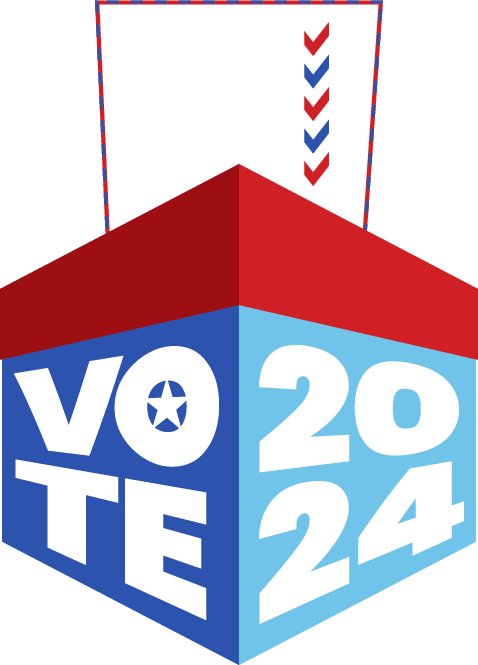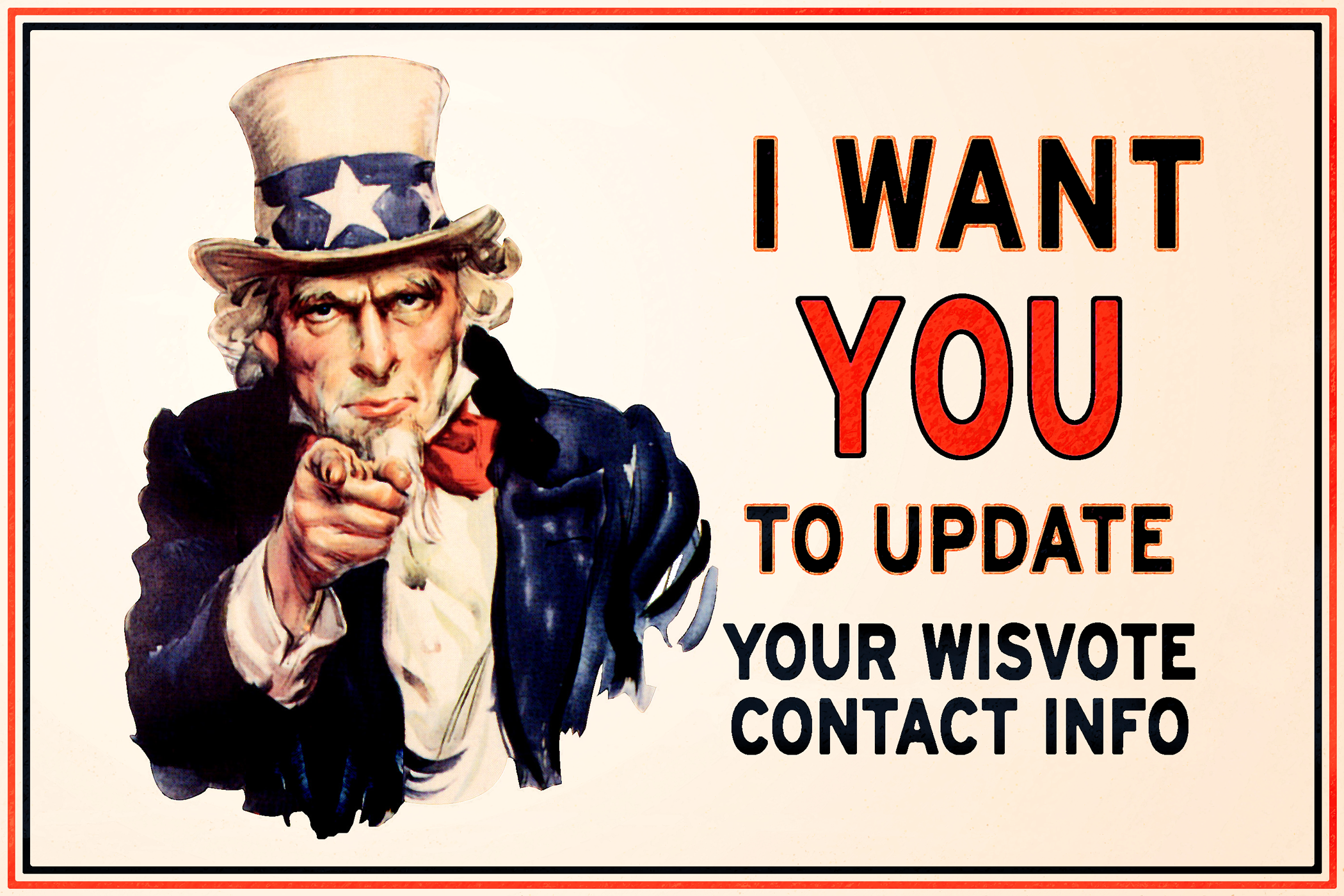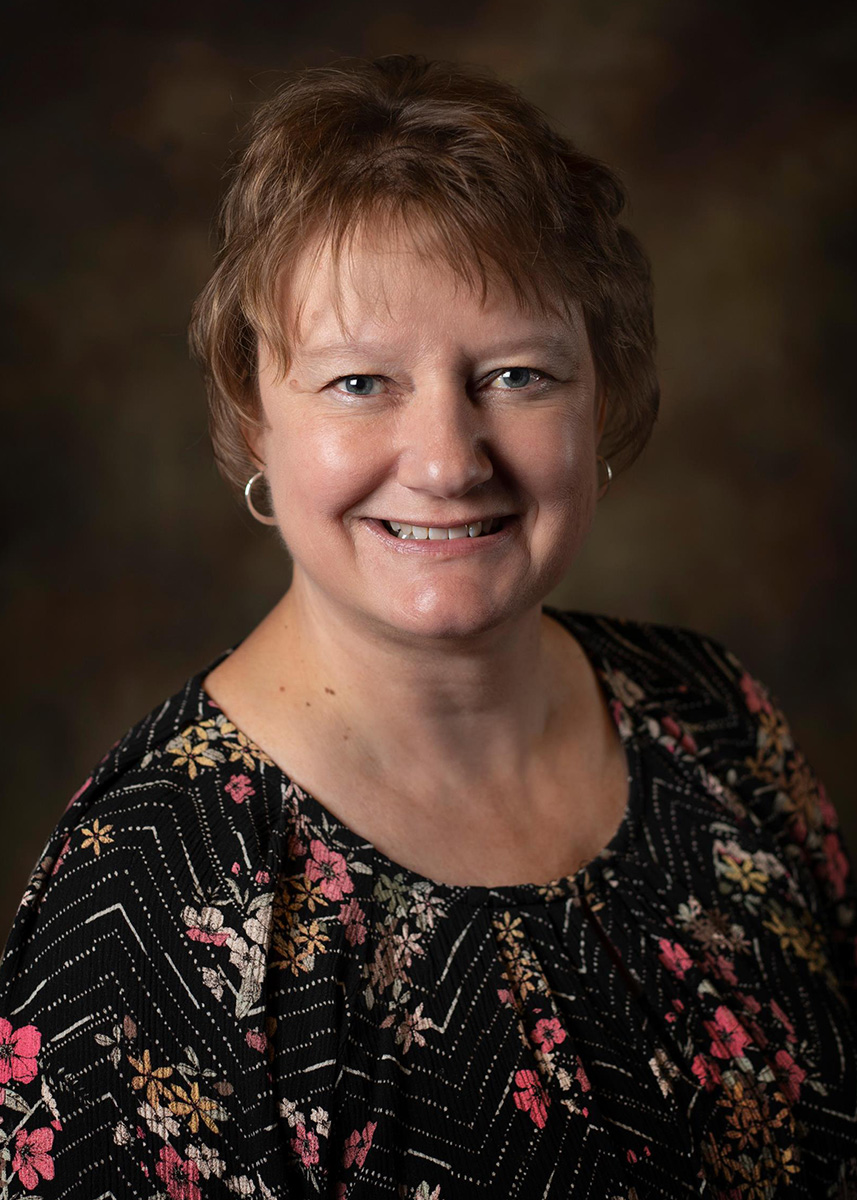
Contents
Reminder:

Public Comment Period Open for Draft EL 4 Election Observer Rule
In March, the Commission approved the Economic Impact analysis and draft EL 4 Rule Order concerning the Commission’s proposed observer rule. Review the documents and notices here.
The main public comment phase for the rule is now open, and any written comments or questions can be emailed to Brandon Hunzicker at [email protected] . The public hearing will be on April 24 at 1 p.m. Anyone may appear and give a four-minute comment on the rule.
Economic Impact Comment Period Open for EL 12 Rule Updates
On September 7, 2023, the Commission members voted 6–0 to approve the draft language of the proposed amendments to Ch. EL 12 on certification and training of municipal clerks and directed staff “to carry out all remaining rulemaking steps.” The current phase is the Economic Impact Analysis. Please take a look at the documents posted here.
Economic impact comments will be accepted until 5 p.m. on May 8, and can be emailed to Brandon Hunzicker at [email protected]. Please let us know if you wish to collaborate with us on the Economic Impact Analysis.

Call For Submissions:
Share Your Election Stories!
We want to hear from YOU!
As we roll out the next volume of the WEC Newsletter we want to feature more compelling and insightful stories from clerks around Wisconsin.
- 📚 Do you have a success story that made a significant impact on your community?
- 🤔 Faced a unique challenge and found an innovative solution?
- 📚 Implemented a creative initiative that could be helpful to others?
Whether it's an inspiring triumph or a hard lesson learned, we invite you to submit your story ideas. Your experiences matter, and by sharing them, you contribute to the collective wisdom of election professionals across Wisconsin.
Submission Guidelines:
- Stories should be related to election management, challenges, successes, and innovations.
- Keep it concise and engaging – aim for a 300-500 word range.
- Feel free to include relevant visuals or infographics to enhance your narrative.
- Submit your ideas via email – with the subject line Election Stories – to [email protected] .
Selected stories may be featured in our upcoming newsletters, providing valuable insights and inspiration to election workers statewide.

Training Opportunities Abound in May
There are several training opportunities next month that will likely be of interest to many clerks. They include a chance to have your cybersecurity questions answered by the Cybersecurity & Infrastructure Security Agency (CISA).
WEC is also sponsoring a Spring Election wrap-up, and a virtual tabletop exercise. You can register on ElectEd for the following dates:
- May 1st – WEC Webinar: Spring Elections Wrap-Up
- May 3rd – Cybersecurity for Home and Work
- May 16th – WEC Virtual Tabletop Exercise
The virtual tabletop exercise is for municipal clerks and deputy clerks only. We'll be reviewing hypothetical scenarios related to election administration and discussing potential responses and approaches. By the end of the exercise, we hope you will be better prepared for the unexpected as we head into the rest of the 2024 election season.
This training will be discussion-based and heavily dependent on attendee participation. As such, participants will need to join with a functioning microphone and speakers. Participant chat will be disabled.

Partisan Primary Primer
Background
Wisconsin was one of the first states to enact the direct statewide primary!
The August Partisan Primary is an open primary -- Wisconsin voters do not indicate their party affiliation on their registration, and therefore can select which party’s primary they want to participate in. A voter may only vote for candidates in one political party.
The party order on the ballot is determined by which party received the most votes in the last gubernatorial election.
Crossover Voting
To prevent unlawful crossover voting (where votes are cast for candidates in more than one political party on the same ballot), a party preference option exists on primary ballots as a way to determine voter preference in the case that a person voted in contests of more than one party. When a voter chooses a party preference, votes cast in that party will be counted, but votes cast in any other party will not. If a voter does not choose a party preference, and votes in more than one party, no votes will be counted (except for nonpartisan contests or referenda, if present). It is important to note that voters must make ballot selections for individual candidates even after noting a party preference. For paper ballot municipalities, voting on only one ballot is choosing a party preference.
Candidate Resources
Candidates who wish to appear on the General Election ballot may circulate nomination papers beginning April 15. Statewide constitutional, legislative, and district attorney candidates or their representatives may submit nomination papers in-person at the WEC office. They are encouraged to make an appointment to file before the June 3 deadline.
Checklists, document templates, and links to set a filing appointment are on elections.wi.gov/candidates.
Submitted state-wide candidate paperwork is available on Badger Voters .
Cybersecurity News

.Gov Email and Website Domains
Have you ever received an email that wasn’t from who you thought it was? For most internet addresses, both emails and websites, anyone can buy any name that isn’t already taken. Criminals will use this to create emails and websites that are very similar to official ones to try to trick people. From the perspective of the public, that means they can’t know for sure that your townoftownville.com address is really yours.
On the other hand, .gov addresses are carefully controlled. When a voter sees an address ending in .gov, they can be confident they are looking at something from an official government source. The Elections Commission, as well as the federal Cybersecurity & Infrastructure Security Agency (CISA), strongly recommend all election officials use .gov domains for official communications. A domain is the portion of an address that belongs to the organization rather than an individual user. For example, in the email address @email , the domain is townsvillewi.gov
Stay tuned for more cyber security tips in our upcoming newsletters.
You can get your jurisdiction’s own .gov domain for either your email or your website for free from either CISA of the Wisconsin Department of Administration. However, setting your email or website to use that domain is a little more involved and we recommend you have some technical support to assist you with that process. There may be increased costs associated with hosting your site or email, and your IT support can assist you in determining what those costs may be in your specific circumstance.
For a domain ending in just .gov, like townsvillewi.gov, CISA has instructions here: .Gov for election offices | get.gov
For a domain ending in .wi.gov, like townsville.wi.gov, contact the Wisconsin Department of Administration at @email . More information can be found on their website: WI Domain Service Request
For more information, CISA has a more detailed document about why a .gov domain is so important and what its benefits are that you can read here: Transitioning to .Gov: Helping Mitigate Election Office Cybersecurity and Impersonation Risks | CISA

Next Election:
Polls open at 7 a.m. on August 13, 2024

Make Sure Voters Can Find You!
Check your staff info on MyVote
Maintaining your contact information and staff list in WisVote is crucial for ensuring that voters can contact your office, and that only active election officials have access to this sensitive database. You can easily verify that your municipality's clerk contact information is correct by using MyVote. Click on the " Find My Clerk " link in the footer and enter a local address.
Also, as a matter of routine, please keep the WEC Helpdesk aware of any incoming staff members who need WisVote access, or outgoing staff members whose access should be removed, and the dates to change their access.
Please contact the WEC Helpdesk if you have any questions about your staff's WisVote.

Sunset on Horicon Marsh in Grant County. Photo by USFWS.
Dodge County’s Karen Gibson Ready For Retirement
Delayed plans finally coming to fruition for veteran county clerk
For Dodge County Clerk Karen Gibson, the decision to retire in May after a couple of decades on the job brings with it a sense of déjà vu. After all, she had planned to make the announcement at least a year ago, but something always seemed to come up.
“I had a newer county administrator, and helped that person with the budget,” said Gibson. Then she said there was a city without a clerk for a bit that needed help. The list of needs goes on, and it eventually dawned on Gibson that “there’s going to be something that comes up every day.”
Indeed, that is the nature of the job for a county clerk in Wisconsin.
It was the era of punch card ballots, of hanging and dimpled chads, when representatives from the county’s 43 municipalities would pack the clerk’s office every Election Night.
Gibson said the fact she has served as an elected official in her home county since 2002 is hard for her to believe when she thinks back on her time growing up on a small beef farm north of Beaver Dam.
In high school she loved to type, wasn’t much of a traveler, and upon graduation figured she would work secretarial jobs after obtaining an administrative assistant degree from a technical school.
She started with Dodge County in 1992, working for Human Services. Next was a stint with the Dodge County Clerk of Courts. She then moved to her final public service home, the Dodge County Clerk’s office, where she was named deputy clerk in 1999.
It was the era of punch card ballots, of hanging and dimpled chads, when representatives from the county’s 43 municipalities would pack the clerk’s office every Election Night.
“Each municipality always had to have three people,” Gibson said. “They would bring in their punch card ballots. We would run them through a punch card reader and people would be sitting all around our breakroom and in the hallways – all these municipalities waiting, because we could only do one municipality at a time.”
Three years later her boss retired, which turned out to be Gibson’s accidental date with political destiny. At the time, she reasoned that if someone else would be elected, “I am going to be training that new clerk, why not just do it, and I did.”
The relationships with those municipal clerks, built in good times and bad, are something Gibson will always treasure. “I work with the best municipal clerks in the state. We respect one another. We have each other’s back,” she said.
Gibson recalled that the day before Thanksgiving in 2016, she found out there was going to be a presidential ballot recount.
The small-town farm girl, who didn’t like to stray too far from home, has gotten to know – and appreciate – every county in the state, from Bayfield to Rock, and from La Crosse to Manitowoc.
“During the holiday season, I didn’t think I would have anyone helping and they (the municipal clerks) all stepped up. I will miss them,” she said. While professional relationships will change, she plans to keep in touch with many on a social basis as the clerks have forged strong friendships.
Gibson said she also very much appreciates her county clerk colleagues and has enjoyed visiting many of their home counties when attending Wisconsin County Clerks Association (WCCA) conferences.
The small-town farm girl, who didn’t like to stray too far from home, has gotten to know – and appreciate – every county in the state, from Bayfield to Rock, and from La Crosse to Manitowoc.
“It’s just a great association; we can lean on one another,” she said of the WCCA. “If one person is going through a big open records request regarding elections,” she said it’s likely all county clerks in the state will have the same tedious request. “So, we are all in this together.”
Gibson said the work has a bonding effect for county clerks.
“None of us are figureheads, we are all working clerks, and we want to make sure all the municipalities are doing what they’re supposed to do,” she said.
This year on Election Day, “I’ll go and vote and go home,” she said. “It will be great."
She gets “such a good feeling” training municipal clerks, keeping them up to speed on an ever-changing landscape of election laws and legal requirements. Gibson said she has never minded taking calls from clerks on nights and weekends, knowing many have day jobs and must conduct clerk work after hours.
In retirement Gibson plans to decompress a bit, and then continue to help her community, perhaps pitching in at church or the library. She is looking forward to tasks “where somebody can tell me what to do instead of the other way.”
Gibson will step aside knowing the clerk’s office is in good hands. Her chief deputy, Danielle Van Egtern, has agreed to fill out Gibson’s term and plans to run for the clerk’s job in the fall.
The November General Election will have Gibson on the sidelines on Election Day for the first time in many years.
“I do know it’s going to be a big election,” she said. Gibson believes turnout will be high and that Wisconsin will likely play an important role again in determining the next president. “I’m glad not to be a part of it.”
Gibson said she will miss her colleagues, but not the stress that goes with the job of county clerk. This year on Election Day, “I’ll go and vote and go home,” she said. “It will be great."
Upcoming Dates & Deadlines
Upcoming Events
- May 1, 2024 – WEC Webinar: Spring Elections Wrap-Up
- May 2, 2024 – Spring election reconciliation and participation due
- May 20, 2024 – Deadline to submit Spring Primary EDR data via WisVote
- June 3, 2024 – Deadline for candidates to file ballot access paperwork
Upcoming Commission Meetings
- June 10, 2024 – Ballot Access Meeting
- June 27, 2024 – Quarterly Meeting
- August 27, 2024 – Special Meeting
Upcoming Elections
- August 13, 2024 – Primary Election
- November 5, 2024 – General Election

